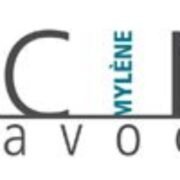Best Collaborative Law Lawyers in Sierre
Share your needs with us, get contacted by law firms.
Free. Takes 2 min.
Free Guide to Hiring a Family Lawyer
List of the best lawyers in Sierre, Switzerland
1. About Collaborative Law in Sierre, Switzerland
Collaborative Law in Sierre, Switzerland, is an approach to resolving family and civil disputes through informed settlement negotiations conducted outside the courtroom. In this method, each party hires their own lawyer, and all participants agree to work cooperatively toward a mutually acceptable agreement. If the process breaks down, the attorneys must withdraw, and the parties cannot rely on the same lawyers in court proceedings. This structure encourages transparency, preserves control in the hands of the parties, and emphasizes practical solutions over adversarial tactics.
In Valais (the canton where Sierre is located), Collaborative Law reflects a broader Swiss trend toward mediation and alternative dispute resolution (ADR) within the civil justice system. While there is no single nationwide statute that creates a universal “Collaborative Law” regime, cantonal practices and federal civil procedure provisions shape how these processes unfold. Practitioners often tailor the approach to the facts, language, and culture of the local context while adhering to applicable Swiss law and professional standards.
For residents of Sierre, the process typically involves early factual gathering, confidential communications, and a focus on durable, future-oriented agreements-especially in family matters such as divorce, child custody, and asset division. Because Sierre sits in the French-speaking part of Switzerland, many professionals describe roles and processes using French terms alongside Swiss German or Italian terminology as appropriate, while still applying Swiss law and court rules when needed.
2. Why You May Need a Lawyer
Collaborative Law is often chosen to reduce conflict, protect privacy, and reach tailored arrangements. The following concrete scenarios commonly lead people in Sierre to seek a Collaborative Law attorney or legal counsel.
- Divorce with complex property and asset structures in Valais. A couple may own farm land, residential property, or a small business in the canton. A lawyer helps inventory assets, value them fairly, and draft an agreement that minimizes tax and future disputes.
- Parental authority and child welfare after separation. Parents may need a detailed parenting plan, decision-making responsibilities, and a schedule for holidays. A collaborative process can preserve parental involvement and reduce court intervention.
- Cross-border elements affecting asset division. If one spouse holds property or income sources outside Switzerland, a collaborative approach helps coordinate Swiss law with foreign assets while preserving confidentiality.
- Preserving business continuity for family-owned enterprises. Partners and spouses who run a family business in Sierre or nearby cantons benefit from negotiated business succession terms and non-disclosure of sensitive information.
- Relocation and housing decisions within the canton. A cooperative process can address temporary or permanent moves, schooling for children, and housing arrangements without protracted litigation.
- Privacy and confidentiality concerns in high-conflict cases. Collaborative Law keeps sensitive financial and personal information out of open court records, which is valuable for reputational or security considerations.
3. Local Laws Overview
Collaborative Law in Sierre operates within the broader Swiss legal framework, anchored by the federal civil codes and procedural rules, with cantonal practices guiding how matters are handled locally. The following laws are commonly relevant to collaborative processes in this region.
- Swiss Civil Code (Zivilgesetzbuch, ZGB) - Governs family matters including marriage, divorce, parental authority, and maintenance obligations. These rules shape the substantive outcomes that collaborative agreements must satisfy. Note that the ZGB provides the legal framework for the rights and duties of spouses and parents in Switzerland.
- Swiss Code of Civil Procedure (Zivilprozessordnung, ZPO) - Sets out the procedural rules for civil actions, including avenues for mediation and settlement outside court. In practice, Collaborative Law practitioners use these procedures to structure the negotiation phase and, if needed, to transition to court remedies under the agreed terms.
- Canton of Valais Code de procédure civile (CPC Valais) / Code de procédure civile du Valais - Cantonal rules that govern civil procedure in the canton, including the handling of family disputes and ADR processes within Sierre. Local rules may influence timelines, document disclosure, and court involvement in the absence of an agreement.
- Federal Act on Data Protection (FADP) - Addresses how confidential information exchanged during mediation and negotiation must be protected. Recent amendments have tightened data protection standards to align with international norms, impacting how lawyers share information with opposing counsel and third parties during collaborative processes.
Source: Swiss Federal Office of Justice and Police and official Swiss legal portals describe mediation and collaborative dispute resolution as an increasingly used, legally informed path within Switzerland's civil justice framework.
Recent trends emphasize ADR integration within family law and civil disputes. In Valais and across Switzerland, courts increasingly recognize the value of early mediation to resolve disputes while preserving client autonomy and reducing court caseload. Practitioners in Sierre rely on substantive law (ZGB) and procedural rules (ZPO, CPC Valais) to design collaborative processes that stay within the applicable legal framework.
4. Frequently Asked Questions
What is collaborative law in Switzerland? It is an ADR process where each party hires a lawyer and agrees to resolve disputes through negotiation without going to court, with a commitment to withdraw if negotiations fail.
What is the role of a lawyer in collaborative law?
Each party retains their own lawyer who facilitates negotiation, explains legal options, and helps draft a binding agreement. Lawyers cannot represent a party in court if the collaborative process ends in court, which encourages real settlement talks.
Do I need a bilingual or French-speaking lawyer in Sierre?
Given Sierre's Francophone environment, many clients hire French-speaking lawyers or bilingual professionals to ensure clear communication and accurate comprehension of terms and translations when documents are prepared in multiple languages.
How do I start a collaborative case in Valais?
Contact a local lawyer who practices Collaborative Law in Valais. The initial meeting typically focuses on issue clarification, confidentiality, and the decision to proceed under a collaborative framework.
What is the typical timeline for a collaborative negotiation in Switzerland?
Most cases progress over 1 to 3 months of structured negotiations, depending on complexity, asset scope, and parental arrangements. If negotiations falter, the process ends with withdrawal of the lawyers and potential court steps.
Can collaborative law handle international or cross-border issues?
Yes, but cross-border matters require careful coordination with foreign law, asset valuation, and potential involvement of foreign counsel to ensure consistency with applicable jurisdictions.
Should I disclose all financial information in a collaborative process?
Full, honest disclosure improves settlement prospects. Information shared in the collaborative process remains confidential, guiding the negotiation and final agreement.
Do collaborative agreements in Valais bind future behavior?
Yes, once executed, the terms of a collaborative agreement are legally binding and enforceable, subject to Swiss contract and family law principles.
Is collaborative law cheaper than going to court?
Typically, it costs less than extended litigation and reduces the risk of public court records. However, costs depend on complexity and the number of meetings required.
What if I suspect my opponent is not negotiating in good faith?
Early signs of non-cooperation should be addressed with counsel. If good faith negotiation is not maintained, you may terminate the collaborative process and pursue court remedies with different counsel.
What is the difference between collaborative law and mediation?
In mediation, a neutral third party facilitates discussions without representing either side. In collaborative law, each party has its own lawyer who actively advocates within the collaborative framework, preserving legal rights and ensuring enforceable agreements.
5. Additional Resources
- Bundesamt für Justiz (BAJ) / Swiss Federal Office of Justice and Police - Provides official information on mediation, ADR, and dispute resolution within Switzerland. These resources help residents understand how collaborative approaches fit into the national justice system. https://www.bj.admin.ch/bj/en/home.html
- Swiss Bar Association (Schweizerischer Anwaltsverband / SAV) - Professional standards, attorney directories, and guidance for clients engaging with Swiss lawyers, including collaborative practice considerations. https://www.sav.ch
- Cantonal resources for Valais / Canton du Valais - Official pages describing cantonal civil procedure rules and ADR guidance relevant to Sierre residents. https://www.valais.ch
6. Next Steps
- Identify your goals and questions for a collaborative process. Write down essential outcomes for children, finances, and housing if applicable. This will guide your initial consultation.
- Find a qualified collaborative law attorney with Valais or Sierre experience. Ask about prior collaborative matters, language capabilities, and their approach to drafting binding agreements.
- Schedule a preliminary consultation to discuss confidentiality, the collaborative framework, and the exchange of information. Request a written engagement letter outlining costs and process steps.
- Prepare a comprehensive asset and obligation disclosure package. Include property, debts, income statements, and any foreign assets if relevant to cross-border issues.
- Draft a formal "collaborative case agreement" with your lawyer. Sign this agreement before formal negotiations begin to confirm the boundaries and withdrawal rules if negotiations fail.
- Begin structured negotiation sessions with both parties and their lawyers. Maintain documentation of proposals, counteroffers, and agreed terms in writing.
- If a durable agreement is reached, have the document reviewed for enforceability and finalize it with appropriate authorities or notaries if required by Swiss law.
Lawzana helps you find the best lawyers and law firms in Sierre through a curated and pre-screened list of qualified legal professionals. Our platform offers rankings and detailed profiles of attorneys and law firms, allowing you to compare based on practice areas, including Collaborative Law, experience, and client feedback.
Each profile includes a description of the firm's areas of practice, client reviews, team members and partners, year of establishment, spoken languages, office locations, contact information, social media presence, and any published articles or resources. Most firms on our platform speak English and are experienced in both local and international legal matters.
Get a quote from top-rated law firms in Sierre, Switzerland — quickly, securely, and without unnecessary hassle.
Disclaimer:
The information provided on this page is for general informational purposes only and does not constitute legal advice. While we strive to ensure the accuracy and relevance of the content, legal information may change over time, and interpretations of the law can vary. You should always consult with a qualified legal professional for advice specific to your situation.
We disclaim all liability for actions taken or not taken based on the content of this page. If you believe any information is incorrect or outdated, please contact us, and we will review and update it where appropriate.









